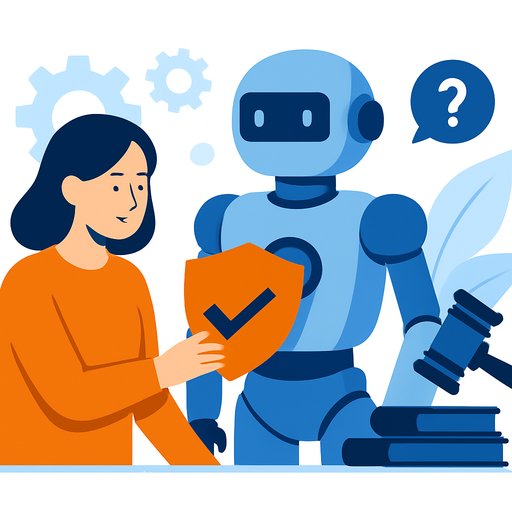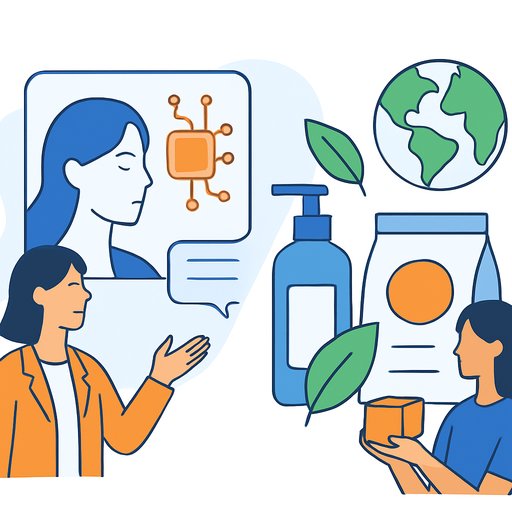AI in Nutraceuticals Market Hits $2.48 Billion by 2032 with 8.19% CAGR
The AI in Nutraceuticals market is on track to nearly double in size, reaching an estimated USD 2.48 billion by 2032. Starting from USD 1.32 billion in 2024, this growth at a compound annual growth rate (CAGR) of 8.19% highlights significant advancements where artificial intelligence is shaping product development, personalization, and operational efficiency in nutraceuticals.
Transforming Product Development with AI
Artificial intelligence technologies such as machine learning, predictive analytics, computer vision, and natural language processing are streamlining the entire nutraceutical development pipeline. These tools accelerate formulation, enable real-time quality assurance, and improve supply chain management. For product developers, this means faster time-to-market and the ability to create supplements that respond directly to consumer health data and preferences.
Key Market Segments
- Product Types: Dietary supplements—including capsules, powders, and gummies—lead the market with AI-driven personalization. Functional foods like fortified beverages and snack bars are gaining popularity as AI enables precise ingredient combinations for specific health benefits.
- Applications: AI supports four main areas: product formulation, personalized nutrition, quality control and safety assurance, and supply chain optimization. Personalized nutrition solutions are growing quickly, fueled by demand for individualized wellness plans.
- Technologies: Machine learning and predictive analytics dominate, helping forecast trends and analyze consumer behavior. Computer vision improves quality control by detecting anomalies, while natural language processing refines formulations by interpreting consumer feedback.
- Deployment Modes: Cloud-based platforms are favored for scalability and real-time analytics, while on-premise solutions remain important for companies with strict data privacy needs.
Regional Insights
United States: Leading AI-Driven Innovation
The U.S. accounts for over 20% of the global AI in Nutraceuticals market. Factors like widespread health awareness, chronic disease concerns, and an advanced tech ecosystem drive growth. Key trends include strategic partnerships between nutraceutical firms and health-data analytics companies, regulatory support that encourages AI integration while ensuring safety, and the rise of digital wellness apps offering AI-based supplement recommendations.
Japan: Aging Population Shapes AI Solutions
Japan’s aging demographic and strong digital infrastructure encourage AI-powered nutraceutical innovation focused on longevity and preventive care. Companies are leveraging AI to analyze genetic and lifestyle data, developing products for cognitive health, bone strength, and cardiovascular support. Government initiatives back research combining AI and nutrition science, with cross-border collaborations accelerating development of next-generation functional foods.
Industry Trends Impacting Product Development
- Personalization at Scale: AI enables mass customization based on individual biometrics, lifestyle, and genomic data.
- Operational Efficiency: Streamlined R&D and supply chains cut costs and speed up product launches.
- Consumer Transparency: AI enhances traceability and quality assurance, building trust in product claims.
Recent surveys show nearly 50% of consumers prefer health claims verified by AI, while companies report a 30% reduction in development time using AI tools. Over two-thirds note improvements in product innovation and efficiency driven by AI adoption.
Competitive Landscape
Key players such as Nestlé Health Science, Danone, BASF, Herbalife, ADM, Yakult, Otsuka, DSM, and NOW Health Group are actively integrating AI into their nutraceutical offerings. Their focus on AI for ingredient discovery, formulation, and predictive health applications places them ahead in delivering next-level products.
Looking Ahead
The AI in Nutraceuticals market is set for steady growth beyond 2032. Advances in machine learning and predictive analytics will improve personalization and product accuracy. Emerging trends like psychobiotics, AI-assisted functional foods, and integrated wellness platforms promise to extend the market’s evolution.
Upcoming Event: Vitafoods Asia 2025
Vitafoods Asia 2025, taking place from September 17–19 at QSNCC in Bangkok, is a key event for product developers in nutraceuticals. Hosting over 650 exhibitors and 13,000 industry professionals, it offers opportunities to explore the latest in functional foods, dietary supplements, probiotics, botanicals, and personalized nutrition. Dedicated zones for new ingredients and contract manufacturing foster innovation and partnerships. Expert forums will cover regulatory trends, sustainability, and microbiome science, providing actionable insights for product development teams.
For professionals seeking to deepen their AI expertise in product development, Complete AI Training offers specialized courses tailored to industry applications.
Your membership also unlocks:





